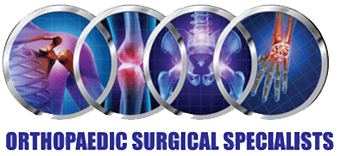General Orthopaedics
Orthopedic care involves diagnosis, treatment, rehabilitation and prevention of injuries and diseases of musculoskeletal system of the body. The musculoskeletal system is made up of muscles, tendons, ligaments, bones and nerves that provide support and stability, and helps in movement of the body parts. Orthopedic treatments may include both non-surgical and surgical methods. Orthopedic care helps individuals suffering from musculoskeletal disorders return to their normal life and can have pain-free activities.
The orthopedic problems treated in orthopedic care include, musculoskeletal injuries, sports related injuries, degenerative disorders, infections, tumors, and congenital disorders.
The techniques used to treat musculoskeletal problems through orthopedic care include:
Traction: Traction is the force applied to pull a part of the body. As in shoulder dislocation, pulleys and weights are used to pull a displaced bone or joint to bring it back to its normal position. Traction is used to treat fractures, joint dislocations and muscle spasms. It is also used to stabilize the immobilization of the bone.
Splint: It is a device used to support, protect, and immobilize the injured bones and soft tissue. Splints help to reduce pain, swelling, and help your injury to heal. Splints are available in different size and shape to fit the injured area.
Non-surgical procedures include deep tissue massage, a massage that focuses on the deep portions of muscles, connective tissue, and fascia. Deep tissue massage helps to relieve chronic muscle tension and knots.
Surgical procedures for fractures, ligament tears, degenerative conditions, and various other conditions.
 Patient Portal
Patient Portal Patient Forms
Patient Forms New Patient Appointment
New Patient Appointment












